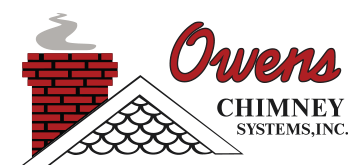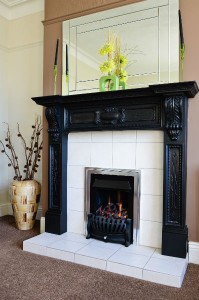Pros and Cons of a Gas Fireplace
The best appliances for your home, in just about every case, are the ones that suit your individual preferences. What looks do you like? What kind of function is the most important to you? What outside factors are you considering? What’s your budget?
Fireplaces are no different — depending on your heating needs, financial expectations, aesthetic leanings and your home itself, certain fireplaces burning certain fuels might best suit you.
There’s a lot to choose from in the hearth industry these days, and that’s good and bad. On the plus side, whatever your preferences might be, there’s a good chance you’ll find a fireplace that suits them. On the other side, there’s a lot to learn, so you can go into the fireplace-purchase decision process armed with good information.
If you’re considering adding a gas fireplace to your home, here are a few pluses and minuses that might get you thinking about what might suit you, and what you might want to know more about.
Gas Fireplaces: The Plus Column
Fire-to-fire and year-to-year maintenance is minimized
If you’re using a gas fireplace, rather than a wood-burning one, you won’t need to clean out ash and debris with every use — you’ll just flip a switch or touch a button, and your fire is ready again. You’ll also see a minimized level of annual maintenance too — the system still needs to be inspected every year, to ensure that everything’s working safely and correctly, but the creosote that needs to be swept from the flue annually with a wood-burning fireplace won’t be a concern.
You’ll see a big boost in energy efficiency
Wood fireplaces are beautiful, but many — particularly older ones — don’t make the most efficient use of fuel. Modern gas fireplaces, on the other hand, are remarkably efficient, with ratings ranging from around 70 percent to as high as 99.9 percent. If energy waste is a big concern for you, gas might be the ideal fuel choice.
You have venting options
With a wood fireplace, a chimney is a must — without proper venting, your fireplace is, to put it lightly, incredibly unsafe. Gas appliances offer some more flexibility. You can install a gas appliance to use an existing fireplace, install a direct vent gas-burning unit with a brand new chimney, or install a ventless/vent-free fireplace that doesn’t need a chimney.
Highly affordable options exist
If you’re working with a slim budget, it doesn’t mean a fireplace is out of the question. Vent-free gas fireplaces can be remarkably affordable, and manufactures make units with a broad variety of looks, too.
Gas Fireplaces: The Concerns Column
Ventless gas fireplaces can produce moisture and other issues
Ventless gas units can be great heaters — since none of the heat produced is being sent up and out of a chimney, you’ll routinely see efficiency percentage ratings in the high 90s. But ventless units do produce byproducts — moisture and gases will be released, and that’s something to consider. Moisture can cause damage, and gases can deplete the oxygen in the room, which could become dangerous. Some states don’t allow the installation of ventless units. If you are using a ventless gas fireplace, though, a dehumidifier or an open window can help with the moisture, and units that include oxygen depletion sensors will shut off long before the oxygen level reaches an unsafe level.
Gas won’t necessarily save on heating costs
If your aim is to save money on heating, gas isn’t necessarily the top choice — propane and natural gas is generally more expensive than cordwood or wood pellets.
All fuels bring pluses and minuses – chimney professionals can help you weigh out what’s best for your needs.

